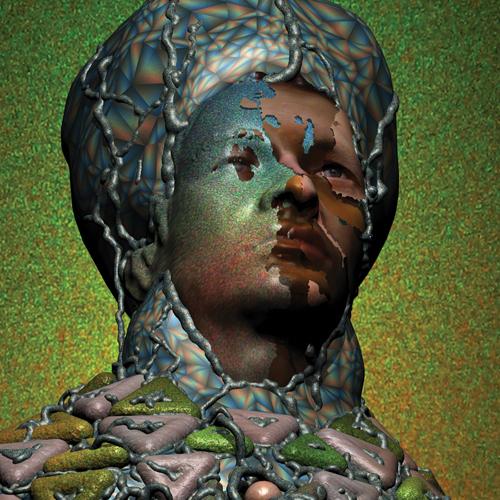
News
Harvard Grad Union Agrees To Bargain Without Ground Rules

News
Harvard Chabad Petitions to Change City Zoning Laws

News
Kestenbaum Files Opposition to Harvard’s Request for Documents

News
Harvard Agrees to a 1-Year $6 Million PILOT Agreement With the City of Cambridge

News
HUA Election Will Feature No Referenda or Survey Questions
Yeasayer
"Odd Blood" (Secretly Canadian) -- 4 STARS

Yeasayer finally know what they want. Though they have distinguished themselves with their myriad cultural influences, the Brooklyn-based trio now challenge their reputation for eclecticism with a more focused, concentrated sound and an unapologetic drive to make themselves heard.
“Odd Blood” is Yeasayer’s first release since their 2007 breakout LP “All Hour Cymbals.” Where “Cymbals” haphazardly imitated everything from West African rhythms to Middle-Eastern pop, “Odd Blood” is decidedly paired-down, although not without foreign influences. The abundance of pop hooks on this album suggests that Yeasayer spent most of their recent downtime in a trashy European discothèque, and loved absolutely every moment of it.
This shift in musical direction is particularly surprising given the band’s previous taste for less instantly gratifying melodies and seriously-minded lyrics. The lyrics on “Odd Blood” continue to be somewhat off-putting, creating an interesting juxtaposition with the band’s new melodic style. This especially stands out on the infectious single “O.N.E.” when lyrics like, “No, you don’t move me anymore / And I’m glad that you don’t / ‘Cause I can’t have you anymore,” offer a stark contrast to the happy-go-lucky mood of the music.
Yeasayer have not forgotten the past, but simply evolved their sound from a ritualistic one into a futuristic one. Unpredictable melodies on tracks like “Grizelda” and “Strange Reunions” serve as reminders of the band’s earlier work, but these are exceptions to the forward-moving, electric sound of the rest of “Odd Blood.” This feeling of forwardness is largely due to a change in percussion use from “Cymbals.” The band has eschewed their old tricks of changing rhythm and meter for drumbeats that are consistent throughout almost every track, which avoids monotony and instead highlights their apt use of electronic melodies and driving vocals.
The band’s newfound drive and self-assuredness is quite evident in their lyrics. “Ambling Alp” features a father advising, “Stick up for yourself, son”; on “Rome,” the protagonist declares, “Rome is gonna be mine / It’s just a matter of time;” even “O.N.E.’s” somewhat passive narrator declares, “I won’t stop ‘til I’ve given you up.” Yeasayer are no longer waiting for the summer, wintertime, or year 2080; they are asserting themselves and looking to seize their moment.
Along with this move towards a more confident and accessible sound, the band has for the first time tackled the most overdone subject matter in pop: love. On “I Remember,” Chris Keating croons, “You’re stuck in my mind all the time,” and even sings, “With you I’d die today.” But do not be fooled into thinking Yeasayer have gone soft. They still find ways to work their fresh confidence into this more traditional type of song. “Love Me Girl” is hardly a passive request for female attention, and the title phrase is one of the more demanding ways to attempt to save a failing relationship. Though these songs show a more accessible side of the band, they still rely on Yeasayer’s talents for great songcraft, and these creations succeed in transcending the banality of many love songs.
The album’s arc is one of the few ways Yeasayer actually fall short of fully expressing their newfound confidence. “The Children,” which opens the album, is less melodic and upbeat than the other nine tracks, and therefore seems more of a prologue than an actual component of the record’s aesthetic. Additionally, later album cuts such as “Grizelda” are much more in keeping with Yeasayer’s earlier sound, contradicting the development displayed on the rest of the album. Closing the record with these less ambitious tracks leaves something of a disappointing aftertaste as the promise of the rest of the album is left somewhat unfulfilled. The middle tracks, notably “Ambling Alp,” “Love Me Girl,” and “O.N.E.” are where the band truly shines. These songs showcase Yeasayer’s sophisticated musical talents, their growth, and their ability to create something utterly catchy yet completely in line with their innovative style. It is these songs that define “Odd Blood,” and prove that Yeasayer are not just a band that want to be heard, but a band that know how to make that happen.
Want to keep up with breaking news? Subscribe to our email newsletter.
Most Read
- Harvard Dismisses Leaders of Center for Middle Eastern Studies
- More Than 80 HLS Professors Denounce Trump Admin Attacks on Law Firms in Letter to Students
- 2 Years After Affirmative Action Ruling, Harvard Admits Class of 2029 Without Releasing Data
- Harvard Agrees to a 1-Year $6 Million PILOT Agreement With the City of Cambridge
- FAS Dean Asks Center Directors To Show Compliance With Viewpoint Diversity Guidance
From Our Advertisers

Over 300+ courses at prestigious colleges and universities in the US and UK are at your disposal.

With innovative financial tools combined with financial education, Collegiate empowers students to take control of their finances and build confidence in their money management skills.

Serve as a proctor for Harvard Summer School (HSS) students, either in the Secondary School Program (SSP), General Program (GP), or Pre-College Program.

With an increasingly competitive Law School admissions process, it's important to understand what makes an applicant stand out.

Welcome to your one-stop gifting destination for men and women—it's like your neighborhood holiday shop, but way cooler.

Admit Expert is a premium MBA admissions consulting company, helping candidates secure admission to top B-schools across the globe with significant scholarships.
